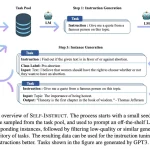There are many ways that you can promote your business events. These methods include email marketing, social media engagement, webinars, and more. By learning about these different forms of marketing, you can use them to promote your event effectively.
Social media engagement
A solid social media engagement strategy is essential for your event marketing success. It helps you boost your overall awareness, increase attendee participation and convert more visitors. But before you jump into the deep end, you should know what you’re getting yourself into.
Social media is one of the most powerful marketing tools in the world, but it takes a little planning to get it right. If you want to succeed, you’ll need to create an event marketing plan to guide your efforts. This can be done with the right software tools and a well-thought out strategy.
Email marketing
Email marketing for event marketing is a great way to create brand awareness and build connections with prospective attendees. Using email to send reminders can help you keep people engaged and encourage them to share the event with their networks. Sending an email with an eye catching CTA is also a good idea.
The best email for event marketing will vary based on the type of event and the amount of information you’re able to include. A good rule of thumb is to include the most relevant information and then use a combination of a call-to-action, graphics, and white space to make it stand out.
Webinars
Webinars are a great tool to help you connect with customers and prospects. They can be held at any time of the year and can be live or pre-recorded. This makes them suitable for all kinds of industries.
While webinars are an excellent way to promote your brand, there are a few things to keep in mind to ensure success. Start marketing at least four weeks before your event.
The first thing to keep in mind is the type of audience you want to reach. You don’t want to cram everyone into your webinar. Instead, pick a few major topics that will pique the interest of your target audience.
Chatbots
Using chatbots in event marketing is becoming increasingly common. They help organizers and participants interact in a more personalized and efficient way. However, they can also cause issues. Luckily, current technology makes it easy to track bot-user interactions and learn how to improve.
Chatbots can be programmed to answer questions, provide feedback, and notify attendees of updates. They are also a great tool for ticketing. You can integrate third-party payment gateway tools into your chatbot.
When you launch your chatbot, test it in advance. That way you can learn what users are asking and tweak it accordingly.
Pre-event promotion
Pre-event promotion in event marketing aims to build hype and create a buzz about the event before the big day arrives. The goal is to entice potential attendees to sign up or exhibit at your event. Using social media is a great way to accomplish this. Social networks can help you promote your event, establish brand identity, and connect with your target audience.
When planning a pre-event campaign, make sure you are clear about your goals and what you hope to achieve. This will allow you to identify the right channels to use. It also allows you to measure results and see what works best.
Measure attendee satisfaction
Attendee satisfaction is a key factor in any successful event. It helps organizers determine what worked and what didn’t. And a good event strategy is one that includes multiple ways to maximize attendee satisfaction.
Event organisers should gather data about attendees before, during, and after the event. The data can then be analyzed to help improve the event. One of the best ways to collect feedback is through post-event surveys. These surveys can be sent in a variety of formats. Some common options include email, a mobile app, or online survey software.
Team up with other organizations
When it comes to event marketing, the best way to achieve success is to team up with other organizations. By doing so, you will be able to reach out to a wider audience and increase your customer base.
For the event to be successful, you must have a solid and definite plan. This plan must include an effective strategy. It must also incorporate different marketing channels.
An effective plan will involve creating content that will attract potential customers. You must also consider the type of event you are hosting.
Many companies allocate about 20 to 50 percent of their budgets to brand experiences. These events can be held both online and offline. The number of companies putting on twenty or more events each year has risen by 17% in 2018.
Events bring people together, and they are a great way to educate your audience about your industry. Moreover, they allow you to create one-on-one connections with attendees. Similarly, onsite product demos can fuel new sales.












